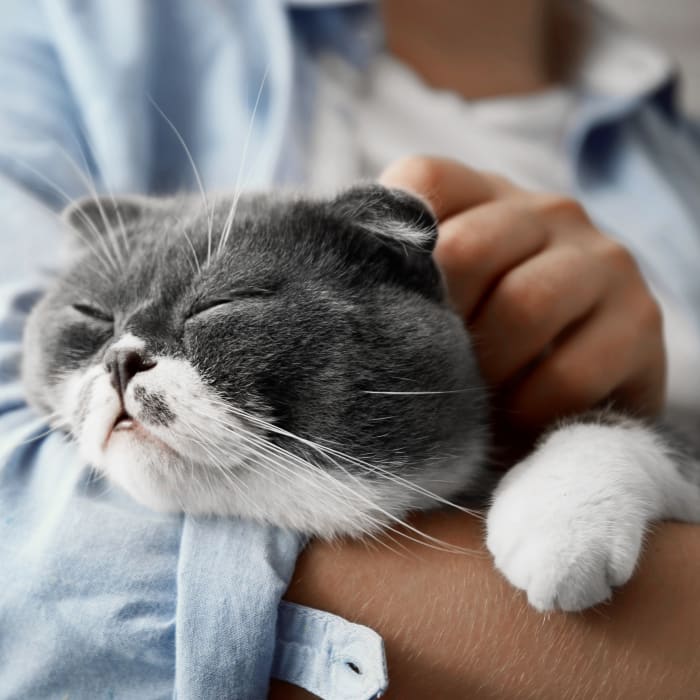Geriatric Care for Senior Dogs & Cats
In order to help provide your companion animal with a good quality of life as they continue to age, your senior pet will benefit from ongoing routine preventive veterinary care as they age.
By providing your pet with comprehensive veterinary care throughout their lives with a little extra care later in life we can help ensure that your pet stays happy and healthy, so it's important that they attend regularly scheduled wellness exams, even if you don't have any concerns.
Our veterinarians are here to help geriatric pets in Millbrook achieve optimal health by identifying and treating emerging health issues early, and treating issues as they arise before they can cause more serious complications.

Common Health Concerns
Our companions are now able to live longer and healthier than ever before thanks to the advances in medicine, nutrition and diagnostic and treatment options.
While having our pets live longer is a wonderful thing, pet owners and veterinarians now face the challenge of managing more age-related conditions in pets than they did in the past.
Senior pets most commonly experience the following conditions:
- Joint or bone disorders
- Cancer
- Heart Disease
- Blindness and hearing loss
- Liver disease
- Diabetes
- Kidney disease
- Urinary tract disease
Veterinary Care for Seniors
During your senior pet's routine visit our vets will complete a comprehensive examination, as well as discuss and perform any diagnostic tests that may be required to receive additional insight about their overall health.
Depending on what the initial diagnostics show, our vets will recommend a treatment plan that can potentially include medications, activities and dietary changes that may help improve your senior pet's health, well-being and comfort.
Routine Wellness Exams
Preventive care is essential to helping your senior pet live a healthy, happy and fulfilled life. It also allows our veterinarians the opportunity to observe and diagnose potential diseases and disorders as early as possible.
Early detection of disease will help preserve your pet's physical health and catch emerging health issues before they develop into long-term problems.
With regular physical examinations, your senior pet will be able to live comfortably, long into their golden years.
New Patients Welcome
Millbrook Valley Animal Hospital is accepting new patients! Our experienced vets are passionate about the health of Millbrook companion animals. Get in touch today to book your pet's first appointment.
Contact
Hours
-
Click to View
- Monday:08:00 am - 05:00 pm
- Tuesday:08:00 am - 05:00 pm
- Wednesday:08:00 am - 05:00 pm
- Thursday:08:00 am - 05:00 pm
- Friday:08:00 am - 05:00 pm
- Saturday:Closed
- Sunday:Closed
